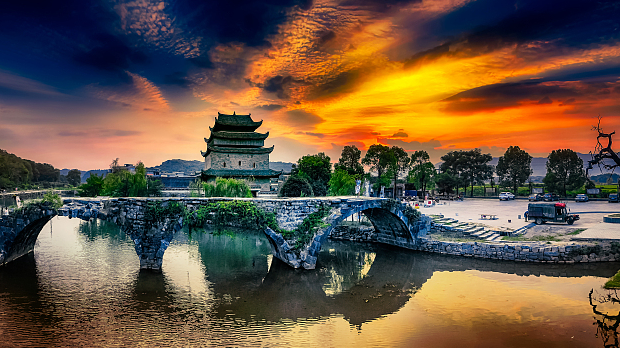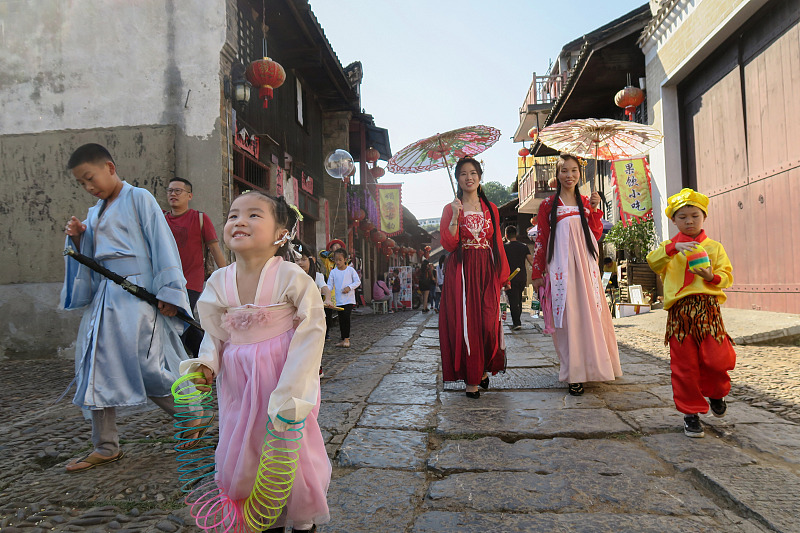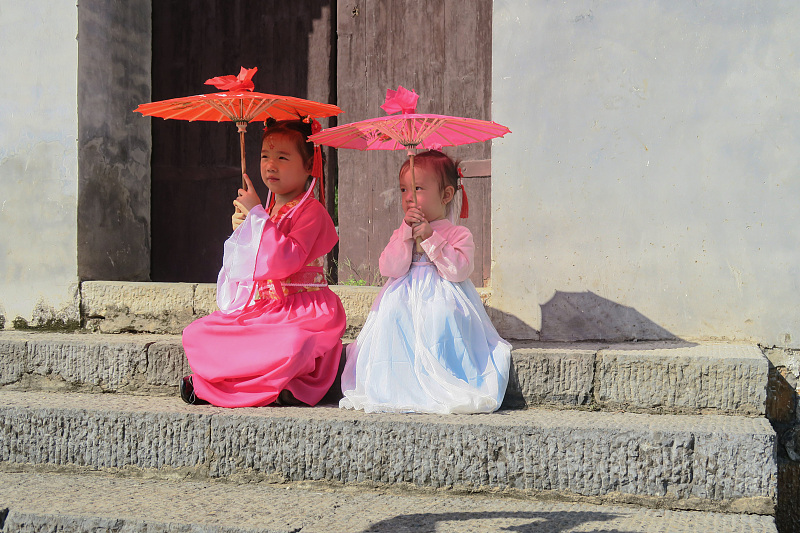Located in Yongzhou City, Hunan Province, Liuzi Street was built in the Tang Dynasty (618-907) to commemorate the famous Chinese poet, philosopher and politician Liu Zongyuan who used to live in the city. Liu Zongyuan is well known as one of "Eight Great Prose Masters of the Tang and Song" because of his outstanding work and literary talent. A beautiful sunset appears over ancient Yongzhou City, Hunan Province. /CFP The 550-meter-long street reached its heyday during the Ming (1368-1644) and Qing (1644-1911) dynasties. As an important transportation hub during that period, there are a lot of ancient buildings along the street featuring the architectural styles of hundreds of years ago. As time went by, the street was expanded and formed a historical and cultural block featuring a wealth of ancient architecture and relics. The block was listed as one of China's national-level tourism and leisure blocks in 2023. Visitors dressed in traditional Chinese clothing walk along on Liuzi Street, Yongzhou City, Hunan Province. /CFP Liuzi Street has retained 100 ancient buildings after extensive restoration and renovation work. Liuzi Temple highlights the historical and cultural value of the block. In 1056, the temple was built using a delicate brick and wood construction method by locals to commemorate Liu Zongyuan, covering an area of 3,600 square meters. What's more, the temple houses many stone carvings that feature poems by notable ancient writers. Children dressed in traditional Chinese clothing enjoy their trip to Liuzi Street, Yongzhou City, Hunan Province. /CFP Liu Zongyuan wrote many poems when he lived in Yongzhou City. He was inspired by the local culture and beautiful scenery in his creative process, while the city gained fame for the poet's work and its rich history and culture. Nowadays, this historical and cultural block welcomes visitors with a revamped appearance featuring both ancient and modern elements. Local authorities have organized folk performances, dramas, films, galas, themed festivals and many other cultural events to present local intangible cultural heritage and provide visitors with an opportunity to appreciate many other aspects of this charming city.


Take a trip down Liuzi Street to remember prose master
Editor:谭婕倪
Source:CGTN
Updated:2023-07-20 10:40:59
Source:CGTN
Updated:2023-07-20 10:40:59
Special
Contact
Welcome to English Channel! Any suggestion, welcome.Tel:0731-82965627
lisl@rednet.cn
zhouqian@rednet.cn











